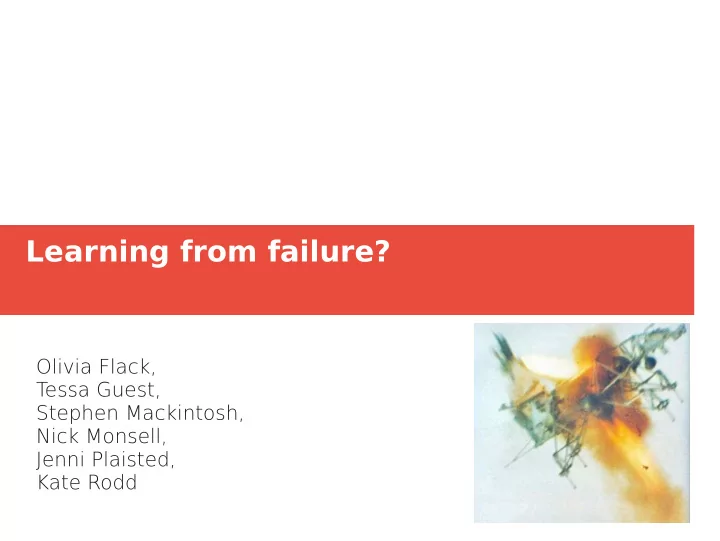

Learning from failure? Olivia Flack, T essa Guest, Stephen Mackintosh, Nick Monsell, Jenni Plaisted, Kate Rodd
Learning and testing ● Optimising learning is important for both students and educators. ● The testing efgect (Roediger & Karpicke, 2006) ● Tests seem to help even when performance is poor (Kornell et al. 2009) ... ● … and even for arbitrary pairings such as vocabulary learning (Potts & Shanks, 2014). 2
Potts & Shanks (2014) Generate: roke - ? / roke – man / roke – mist Study: roke – mist Test: ‘roke’ means: lament threat mist loud RESUL T: Generate better than Study. 3
Our question Would the Potts & Shanks result generalise to a more challenging type of test? (i.e. recall rather than recognition) 4
Method ● 27 participants ( 2 lost due to technical errors ) ● Within-subjects ( Generate vs. Study ) ● 15 word pairs per condition ( e.g. gadoid = fjsh ) ● Generate: ● 10 seconds: cue (gadoid) and guess ● 7 seconds: pair (gadoid – fjsh) ● Study: ● 17 seconds: gadoid – fjsh ● Recall test: All 30 cues ● What does this word mean? gadoid 5
Results Meaning: 0.13 Study: 0.14 BF = 0.30 No efgect of study type in a cued recall test. 6
Next steps ● Performance very low – fmoor efgect? ● Test after each encoding coding. Any questions? All images from Wikimedia Commons 7
Recommend
More recommend